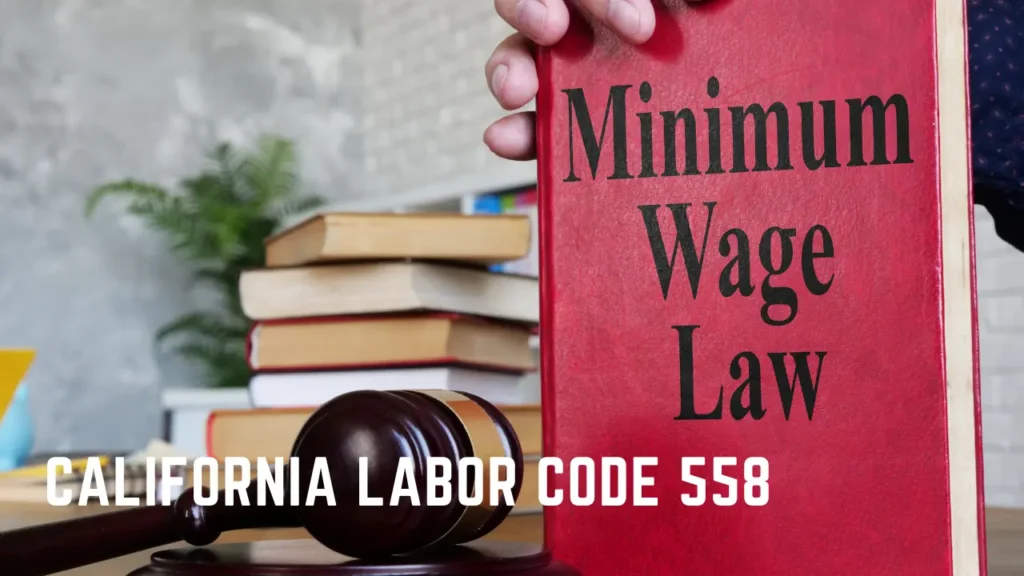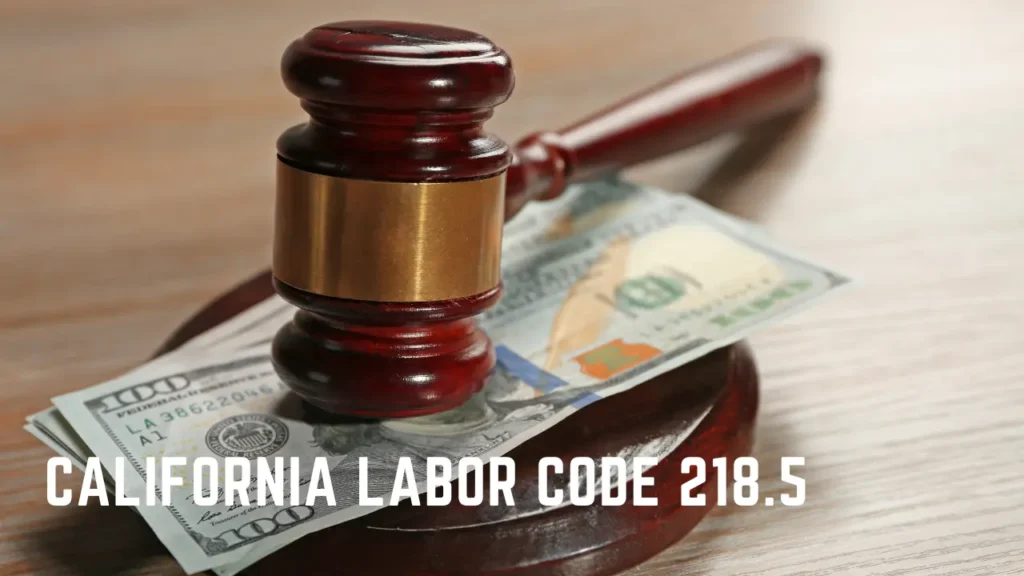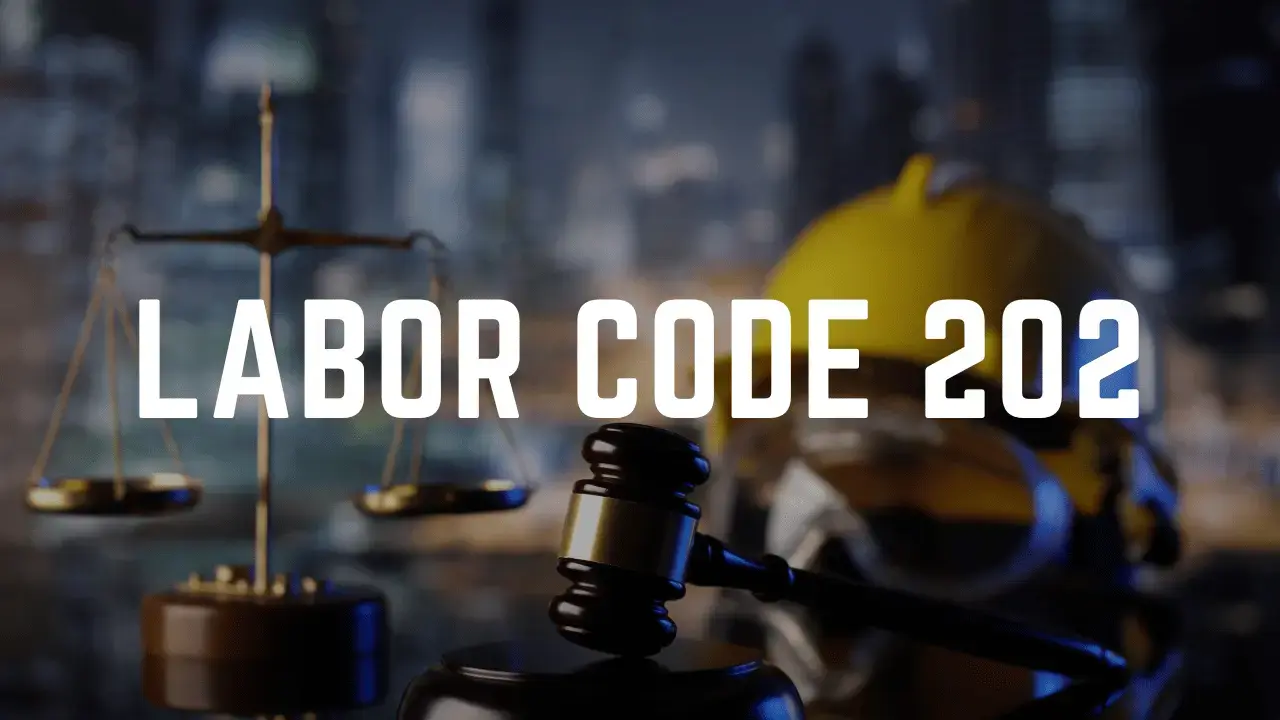Table of Contents
ToggleAre employers exploiting their workers’ immigration statuses? If so, what legal recourse exists for those affected? As we dissect the intricacies of this issue, we will venture into the world of protected activities, legal penalties for retaliatory employers, and the role of state authorities and legal practitioners in enforcing justice.
Understanding Immigration Retaliation Laws
In order to fully comprehend the scope and implications of immigration retaliation laws in California, it is essential to examine the specific circumstances under which these laws are enacted, the protected activities they cover, and the legal remedies available to those who experience such retaliation.
These laws come into effect when employers retaliate against employees based on their immigration status. Such retaliation often occurs when employees engage in protected activities, such as reporting labor law violations or unsafe working conditions. The retaliation may involve threats of deportation, wrongful termination, or other adverse employment actions.
Legal remedies for victims include reinstatement, back pay, and even fines against the employer. Understanding the breadth of these laws is crucial for both employers and employees to ensure lawful conduct in the workplace.
California’s Stance on Immigration Retaliation
Building upon this understanding of immigration retaliation laws, it is crucial to explore specifically how California, as a state, addresses this issue and champions the rights of immigrant workers. California law robustly protects employees against immigration-based retaliation. This includes any adverse action taken in response to protected activities such as filing complaints or whistleblowing.
Penalties for non-compliance can be severe, including fines of up to $10,000 per employee and potential revocation of business licenses. The California Labor Commissioner’s Office enforces these laws, with aggrieved employees having the right to file civil suits under the California Labor Code.
Unfair immigration-related practices, including misuse of the E-Verify system and threatening to contact ICE, are expressly forbidden. Legal firms are available to assist those facing violations.
Retaliation Complaints Statistics
Analyzing the data pertaining to immigration retaliation, a significant number of complaints were reported in California, highlighting the prevalence of this issue. The data provides a stark illustration of the current scenario and an overview of the retaliation complaints:
- In 2017, California saw 94 cases of retaliation complaints reported.
- The year 2018 witnessed a rise in the number of complaints to 105.
- In 2019, the number dropped slightly to 101 but still remained high.
- The first half of 2020 recorded 52 complaints, mirroring a downward trend potentially due to the pandemic.
- Over four years, the total number of reported complaints in California reached a staggering 352.
These numbers underline the pressing need for robust enforcement of immigration retaliation laws.
Identifying Protected Activities
Recognizing and understanding protected activities under California law is a crucial step toward safeguarding workers from immigration retaliation. These activities include filing complaints or informing an employer about intent to file a complaint, whistleblowing, initiating a civil lawsuit against an employer, discussing concerns about wage issues, and reporting unsafe work practices.
Such actions are legally shielded, and any retaliatory response from the employer based on these activities can lead to serious legal consequences. Employers who engage in adverse actions, such as threats of deportation, in response to these protected activities, could face significant penalties including fines, business license revocation, and mandatory reinstatement of the employee.
Understanding these provisions empowers employees to exercise their rights without fear.
Adverse Actions and Their Consequences
While the law provides safeguards against immigration retaliation, it also outlines serious consequences for employers who engage in such adverse actions.
- Employers may face hefty fines, sometimes as high as $10,000 per violation, which can rapidly accumulate in businesses with multiple employees.
- The law can also mandate the reinstatement of unfairly dismissed employees, often with back pay, causing further financial strain on the business.
- In severe cases, employers may lose their business license, a punishment that could lead to permanent closure.
- Employers may also face civil lawsuits, leading to potential damages awarded to the plaintiff.
- Lastly, the reputational damage from such lawsuits can negatively impact the business, deterring potential customers, investors, and employees.
Thus, retaliatory adverse actions carry significant legal, financial, and reputational risks for employers.
Legal Remedies for Punishment
In the event of immigration retaliation, the California Labor Code provides several legal remedies to protect the rights of the employee and penalize the offending employer. Remedies can include reinstatement, back pay, and in severe cases, revocation of the employer’s business license.
Furthermore, the employer may face a fine of up to $10,000 per employee affected. To enforce these laws, the California Labor Commissioner’s Office is the primary authority, but employees also have the right to file civil lawsuits under the California Labor Code.
Legal assistance firms like the Shouse Law Group can support workers facing such rights violations. It is crucial to seek prompt legal advice when experiencing employer misconduct, ensuring the proper enforcement of immigration retaliation laws.
Potential Consequences for Employers
Under the rigorous scrutiny of California’s immigration retaliation laws, employers who engage in prohibited practices risk facing stringent penalties designed to deter further misconduct. These laws are designed to maintain a fair and just work environment, protecting immigrant workers from threats and retaliation.
The consequences for employers who violate these laws could result in:
- Revocation of their business license, significantly impacting operations.
- Legal fines of up to $10,000 per affected employee, pose a serious financial threat.
- Being subject to potential civil lawsuits leads to costly and reputation-damaging litigation.
- Remedies such as reinstatement of the affected employee and back pay.
- Public exposure leads to the potential loss of clients, customers, or partners.
These penalties demonstrate the severity of immigration-related retaliation and the commitment to protecting vulnerable workers.
Navigating Unfair Immigration-Related Practices
How does one navigate the complex landscape of unfair immigration-related practices in the workplace?
It begins with a solid understanding of rights and protections. California law prohibits employers from intimidating or retaliating against employees based on their immigration status. This includes threats of contacting immigration authorities or misusing E-Verify, an internet-based system that determines employment eligibility.
When these protections are violated, employees can seek remedies such as reinstatement or back pay, and employers may face significant fines. Legal assistance is also available to help navigate these complexities.
It’s important to remember that discussing wage issues, reporting unsafe conditions, or whistleblowing are all protected activities, ensuring that employees can stand up against labor violations without fear of immigration-related retaliation.
Misuse of the E-Verify System
Building on the topic of unfair immigration-related practices, it’s crucial to address the misuse of the E-Verify system, an internet-based platform that has been exploited by some employers as a tool for intimidation and retaliation against employees based on their immigration status.
- E-Verify is designed to confirm the eligibility of employees to work in the U.S. However, some employers misuse it to threaten employees who attempt to assert their labor rights.
- These employers might falsely inform workers they failed E-Verify checks when they complain about labor violations.
- In other instances, employers may misuse the system by conducting unauthorized checks, creating fear of deportation.
- State and federal laws prohibit such misuse, yet enforcement can be challenging.
- Continued vigilance, education, and legislation are needed to protect employees from these exploitative practices.
Legalities Around Retaliatory Document Requests
In the realm of immigration retaliation, a significant issue involves employers’ retaliatory requests for unnecessary documentation, a practice fraught with legal implications and potential penalties. Under California law, such actions are considered unfair immigration-related practices. Specifically, employers are prohibited from making unnecessary document requests that are retaliatory or discriminatory in nature.
Violations can result in severe repercussions, including fines of up to $10,000 per employee and the potential revocation of business licenses. Moreover, employees subjected to such practices have the right to file civil lawsuits under the California Labor Code.
Therefore, it is crucial for employers to understand their responsibilities and for employees to know their rights, to prevent exploitation and uphold the principles of fair labor practices.
Enforcing California’s Retaliation Laws
Given the gravity of potential penalties for engaging in unfair immigration-related practices, the enforcement of California’s retaliation laws becomes imperative to ensure the rights of immigrant workers are protected and upheld.
- The California Labor Commissioner’s Office is responsible for enforcing these laws, ensuring that employers who engage in retaliatory practices are held accountable.
- Retaliation complaints are investigated thoroughly, and employers found guilty are subject to severe penalties, including fines of up to $10,000 per employee.
- Workers can also file civil lawsuits under the California Labor Code to seek redress.
- Legal firms such as Shouse Law Group assist workers facing rights violations.
- Prompt legal action is crucial in cases of employer misconduct to discourage such practices and uphold the rights of immigrant workers.
Filing Civil Lawsuits for Retaliation
Navigating the labyrinth of legal processes, an aggrieved worker can opt to file a civil lawsuit for retaliation under the California Labor Code, providing a potent tool to counteract immigration-related abuses by employers. This legal course affords protection to employees from retaliatory and discriminatory actions based on their immigration status.
The lawsuit can be filed for a range of protected activities, including whistleblowing, lodging complaints of wage theft, or unsafe work conditions. Remedies can include reinstatement, back pay, and fines up to $10,000 per violation. This legislative provision underscores California’s commitment to safeguarding worker rights, regardless of immigration status.
However, the complexities of the process necessitate legal assistance to ensure effective enforcement and redress.
Seeking Legal Assistance in California
For workers grappling with immigration retaliation in California, securing legal assistance is a pivotal step toward achieving justice and safeguarding their rights. Navigating the complex landscape of labor laws and immigration policies can be daunting, and expert legal guidance can significantly ease this process.
- Legal firms such as the Shouse Law Group specialize in defending workers facing rights violations.
- Employees can approach the California Labor Commissioner’s Office, which enforces immigration retaliation laws.
- Civil lawsuits under the California Labor Code can be filed with legal assistance.
- Organizations like the National Immigration Law Center provide resources and help.
- Hotlines such as the Worker’s Rights Clinic offer free advice.
Legal assistance is instrumental in ensuring fair treatment, compensation for damages, and the prevention of further retaliatory actions.
Conclusion
The issue of immigration retaliation is a significant concern in the labor sector, particularly in California. The state’s laws, aimed at protecting workers against immigration status-based threats, underscore the importance of safeguards for whistleblowing, filing complaints, and wage discussions.
The enforcement of these laws, coupled with potential legal remedies, underscores the critical role of legal firms in upholding worker rights. However, the high number of retaliation complaints highlights the need for continued vigilance and advocacy in this area.















